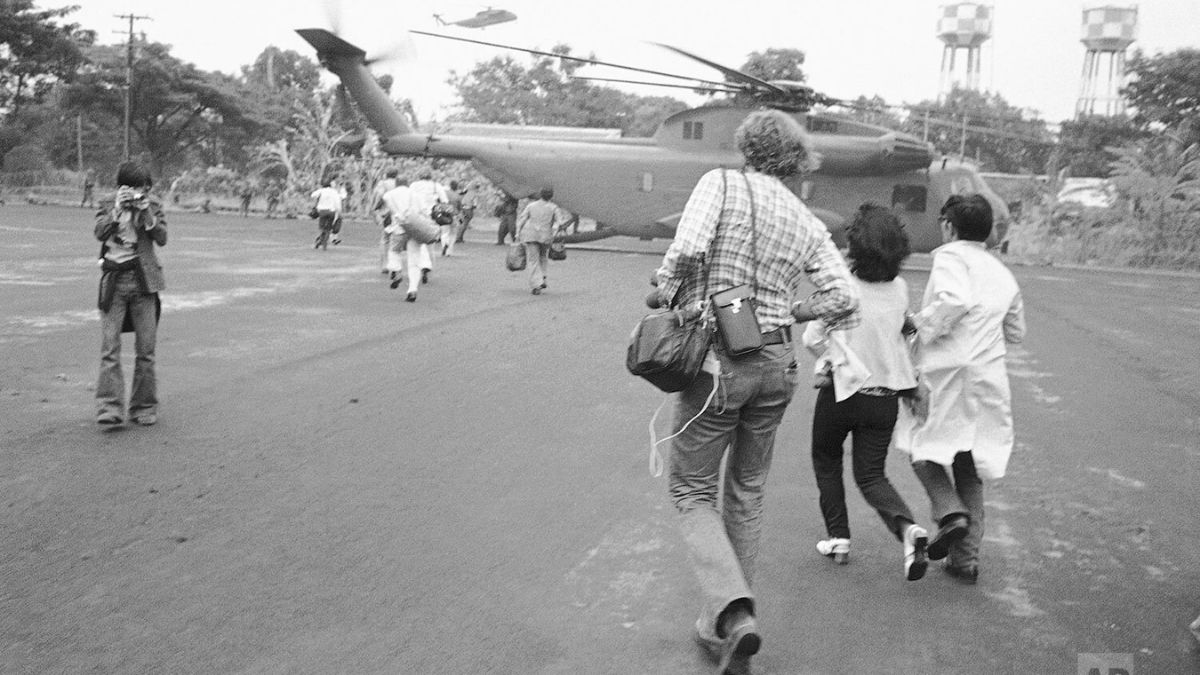One of the most controversial and devastating conflicts of the 20th century, the Vietnam War, officially came to an end on April 30, 1975. The North Vietnamese forces captured Saigon, the capital of South Vietnam, effectively bringing decades of fighting to a dramatic close. Meanwhile, on this day in 1945, German dictator Adolf Hitler committed suicide in his underground bunker.
If you are a history geek who loves to learn about important events from the past, Firstpost Explainers’ ongoing series, _History Today_ will be your one-stop destination to explore key events.
The world wide web (www) was launched in the public domain on this day in 1993. Meanwhile, London’s iconic Big Ben clock stopped for 43 minutes.
Here is all that happened on this day across the world.
End of the Vietnam War
One of the bloodiest wars of the 20th century, the Vietnam War came to an end on April 30, 1975, when North Vietnamese forces captured Saigon , the capital of South Vietnam, effectively bringing decades of fighting to a dramatic close.
The fall of Saigon followed years of intense conflict between the communist North, supported by the Soviet Union and China, and the anti-communist South, primarily backed by the United States. Despite significant American military involvement, growing domestic opposition and substantial casualties led to the US withdrawal of most forces by 1973 under the Paris Peace Accords. Subsequently, South Vietnam struggled to defend itself against the escalating aggression of North Vietnamese forces.
On the morning of April 30, North Vietnamese tanks rolled into Saigon with little resistance. South Vietnamese President Duong Van Minh, who had only assumed office two days earlier, announced an unconditional surrender. The chaotic final hours saw desperate scenes at the US Embassy, where American personnel and vulnerable South Vietnamese citizens were evacuated by helicopters in Operation Frequent Wind.
Hitler killed himself in his bunker
World War II orchestrator and German dictator Adolf Hitler decided to take his own life in his bunker on this day after he realised that he would not be able to establish his “1000-year Reich”.
Once the realisation hit that Berlin would be defeated in the war, Hitler decided to spend his final days in the bunker below his headquarters in the Reich Chancellery gardens near the Brandenburg Gate. He said, “I shall not fight personally.” He further stated, “There is always the danger that I would just be wounded and fall into the hands of the Russians alive. I don’t want my enemies to disgrace my body either. I’ve given orders that I be cremated. Fraülein Braun wants to depart this life with me.”
On April 29, Hitler married his long-time partner Eva Braun in the bunker. They had their first meal as a married couple and toasted it with champagne. The next day Hitler and Braun went to their quarters and while both of them took cyanide pills, the Fuhrer also shot himself in the head.
WWW launched in the public domain
The world changed forever on this day in 1993 when CERN, the European Organisation for Nuclear Research, announced that the World Wide Web (WWW) would be made freely available to the public. With this decision, one of the most transformative technologies in human history was placed into the public domain, allowing anyone to use and build upon it without paying fees or securing licenses.
The World Wide Web, created by British computer scientist Tim Berners-Lee in 1989, was developed to form a system that could easily share information between researchers across different locations. He combined concepts like hypertext, the Internet and domain naming systems to build what would become the first web browser and server.
By 1993, the Web was still a young and mostly academic tool, but its potential was clear. Berners-Lee and CERN decided that for the Web to truly flourish, it needed to be open to everyone. Their decision to release it into the public domain without patent restrictions ensured that the technology could grow rapidly and innovatively.
Big Ben stops for 43 minutes
The iconic Big Ben clock atop the Elizabeth Tower in London stopped unexpectedly on this day in 1997 at exactly 12:11 pm. So, for 43 minutes, the world’s most renowned clock, known for striking the note of E on the hour, malfunctioned and failed to maintain accurate timekeeping.
According to the Daily Telegraph, the engineers traced the problem to the mechanism that controlled the hands on the four clock faces. As the hands froze, the familiar sound of its great bell, a sound that had resonated through wars, celebrations and daily life since 1859, was absent. Engineers were called in to inspect the mechanism and quickly found that a technical fault in the clock’s drive system had caused the problem. Fortunately, it was not a major failure. Big Ben was back in working order, restored with minimal disruption.
Interestingly, this incident came at a politically charged time: just days before the United Kingdom’s general election on May 1, 1997, which would bring Tony Blair’s Labour Party to a landslide victory, ending 18 years of Conservative government. Some Londoners, ever fond of symbolism, jokingly mused that even Big Ben seemed aware of the coming changes.


)

)
)
)
)
)
)
)
)



